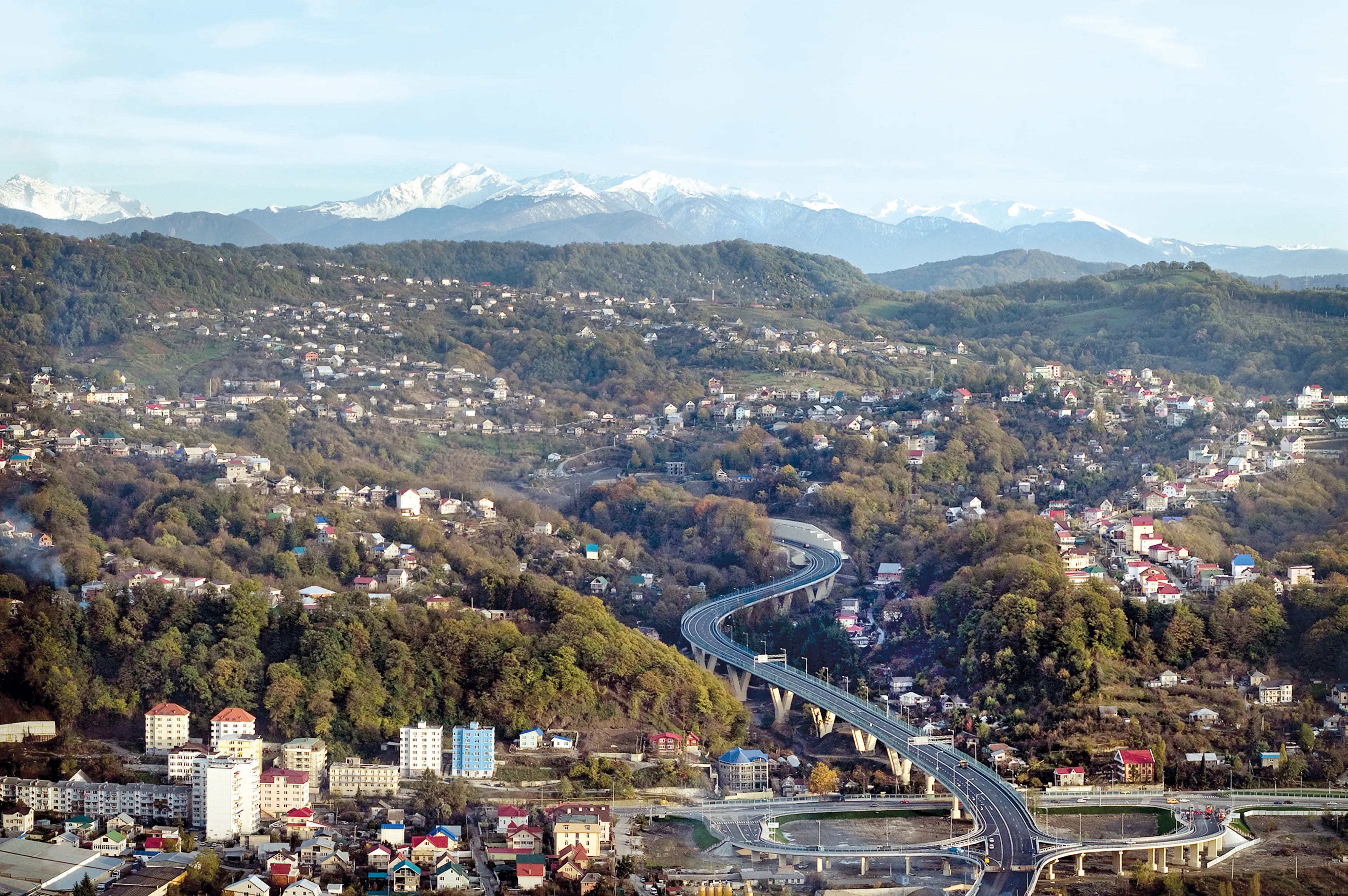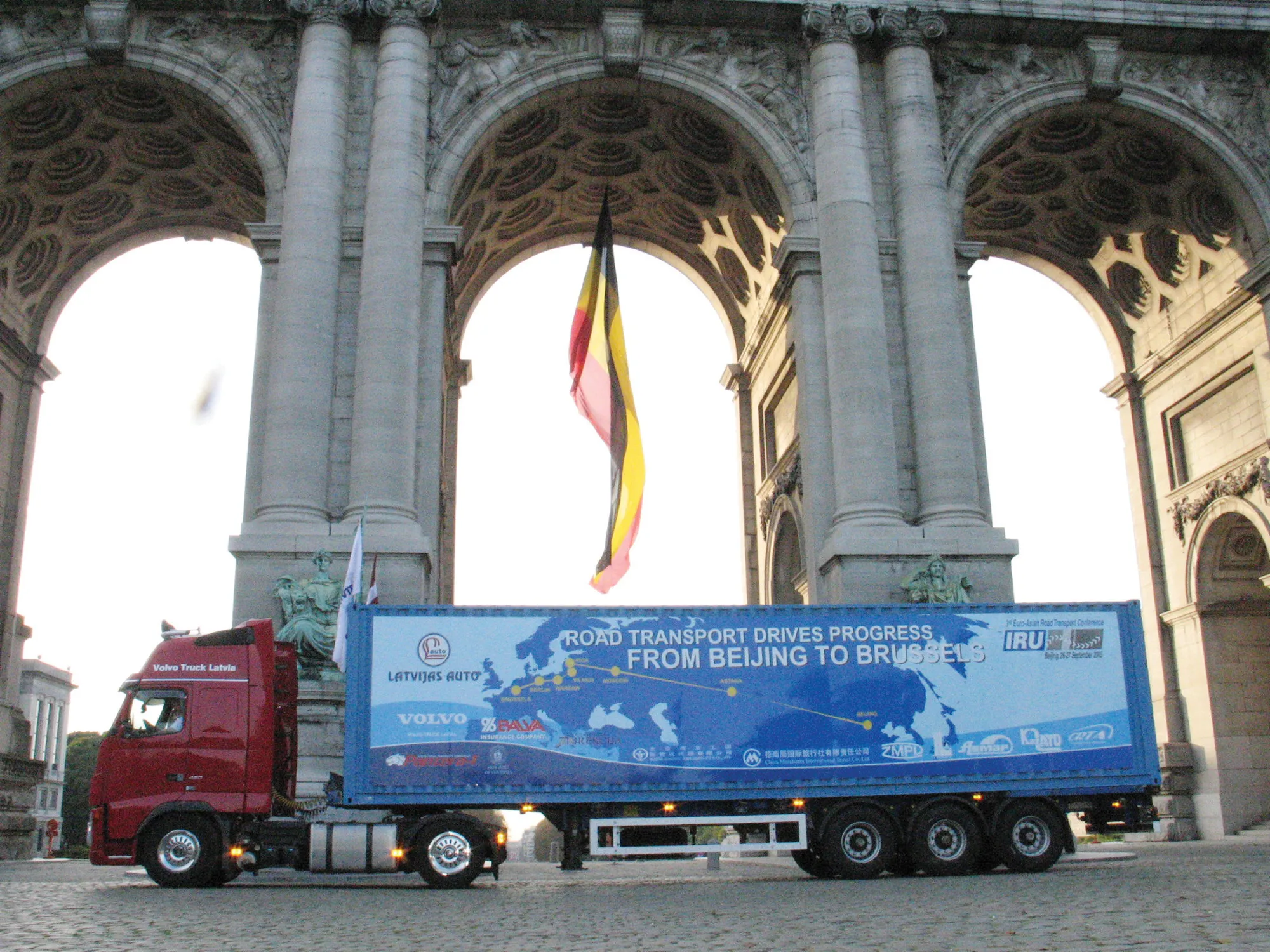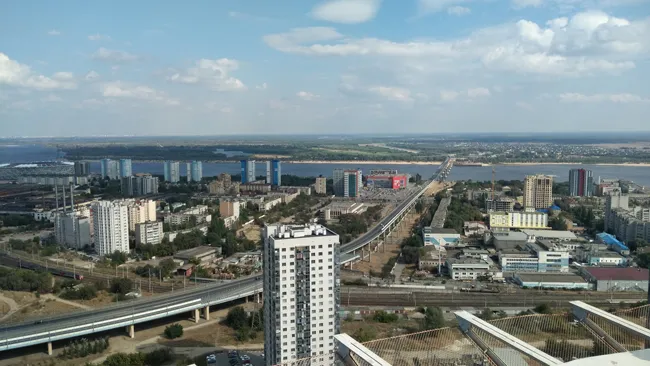Igor Pankin is CEO of Transstroy, one of Russia’s largest transport infrastructure construction companies, a part of Oleg Deripaska’s Basic Element group. Created in 1992, the company has completed major construction projects with a combined worth of more than €4 billion (RUB 121 billion) The Olympic motto, ‘Swifter, Higher, Stronger’, is very appropriate for the Sochi 2014 Winter Olympics – and not just in reference to the action in its stadiums and on its slopes. The city has been transformed from a small
September 30, 2013
Read time: 4 mins

Igor Pankin is CEO of Transstroy, one of Russia’s largest transport infrastructure construction companies, a part of Oleg Deripaska’s Basic Element group. Created in 1992, the company has completed major construction projects with a combined worth of more than €4 billion (RUB 121 billion)
The Olympic motto, ‘Swifter, Higher, Stronger’, is very appropriate for the Sochi 2014 Winter Olympics – and not just in reference to the action in its stadiums and on its slopes. The city has been transformed from a small coastal resort to a city capable of hosting one of the most prestigious sporting events in the world.The Games represent a one-off opportunity for
At
In just 17km of four-lane highway there are nine tunnels and 13 bridges at a total cost of €2.5 billion. Since 2009 work on the route has been going on 24/7, employing 4,000 construction workers over three shifts, and will be complete by the end of 2013.
The terrain through which this unique highway passes posed some serious engineering challenges. A significant portion of the route passes over the Sochi arboretum and the grounds of the national park which placed limits on the type of construction that could take place. The resulting overpass stretches for almost a kilometre (998m) following the curving landscape of the gorge.
The nine tunnels along the route, under the city and its suburbs, also posed a significant and unusual challenge with many being excavated in soft ground. The process used a variation on the enhanced Italian method of tunnelling - the first time the technology has been in used in Russia. This method provides a high level of safety while excavating at the speeds necessary to complete the project on time and on budget, overcoming many of the natural challenges inherent in the Sochi project.
As part of this process we have developed a new method of installing underground railway crossings. The tunnels can be built without disrupting existing railway and transport links and are also significantly cheaper than building overpasses or shield tunnelling (at an average cost of only €75,275). Not only that but it facilitates the construction of tunnels of any diameter in a variety of different soil types.
This new technology has enabled us not only to overcome the challenges we faced in Sochi, it is a long-term investment for us as a company, placing us at the cutting edge of the Russian construction industry and bringing significant competitive advantages in the future.
Infrastructural investment in Russia has not been limited to preparation for the Olympic Games in the area around Sochi. Some of the most complex and ambitious infrastructure projects since the Soviet era are currently underway across Russia and we expect this trend to continue.
Transstroy is already involved in the complete reconstruction of the Schelkovo highway in Moscow to increase capacity. We estimate that in the Moscow region alone there are more than 1,000 railway crossings that could be upgraded using our tunnelling techniques as well as additional traffic tunnels under railways to reduce congestion on major highways.
Nor are infrastructure projects limited to western and southern Russia. Improving the infrastructure of Russia’s sparsely populated North-East in order to improve access to reserves of natural resources is a major priority. The Amur-Yakutsk Railroad will be completed in a matter of months with possible plans in the future for the first bridge across the Lena River (joint rail and road).
The Olympics might be the showcase for Russian construction but it certainly should not be seen as a high watermark after which investment will begin to fade away.
‘Legacy’ is a popular word when discussing major sporting events, and for Russia that legacy will include a significantly increased skill base in the construction sector that will continue to yield benefits in major projects for decades to come.








